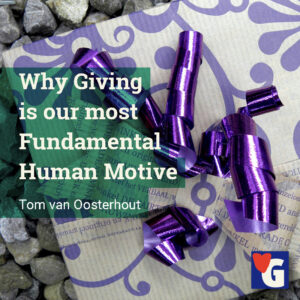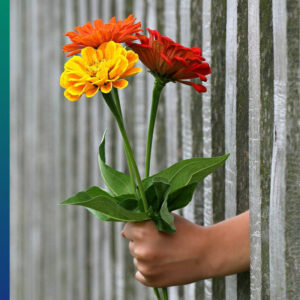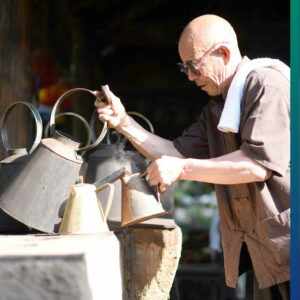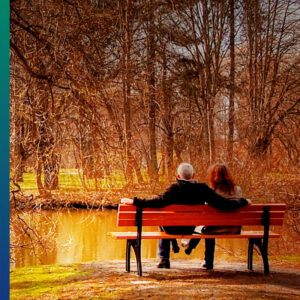
For years on end classic economists have spread the gospel that selfishness is the human motive that overpowers all other motives. Nonsense. A big lie.
Giving is far more important. This is because our social life is far more important. Our everyday life together with others. At home. In the neighborhood. In our communities.
Our relationships give meaning to our lives.
Yet, good relationships don’t fall from the sky. We have to invest in them.
The best way to understand giving as our most fundamental human motive is by examining what the costs and benefits are. As it appears selfishness harms the self. In contrast, giving benefits. How is this possible?
Table of contents
Fight-or-flight

In specific circumstances of threats to our personal life, fight-or-flight is our best – and selfish – option. In these days of the virus, this assumption must be questioned.
Many so-called frontline workers sacrificed their lives for others. In disregard of personal risks medics, policemen, and firefighters took it upon themselves to fight the pandemic.
This proves to us that our longevity, our survival, depends on our courage and our capacity to care for each other. To fight for others with courage and our best abilities is our only option.
Related: 11 Simple Steps to Change your Life no Matter what Age you are
Of course, all the above considerations do not explain how our survival (selfish or not) relates to crucial other developments on this planet. Yet, for now, I emphasize the conclusion that selfishness harms us and I want to explain why this is possible.
I do this by referring to the 6 crucial laws that govern our everyday social life. These laws are meant to guide us through the periods that we doubt our fellow human beings. Such doubts are not very productive. And they will harm you.
The law of everyday giving

Everyday giving has a range of benefits. If we help someone our psychological wellbeing, our physical health, and our relations with others, they all improve.
To help someone boosts our self-esteem, our feelings of happiness, enhances our self-control, and reduces the symptoms of depression.
What is everyday giving? These are the most simple tasks we perform each day for someone else. Such as cooking, cleaning the house, shopping, and gardening.
For many people earning a living for the family and helping out friends when they move to a new place, we also consider modes of everyday giving. In fact, our list of social help activities seems endless.
A huge number of volunteers give their time and attention to their community, to people they know because they live in their neighborhood. And just as many volunteers work for people they don’t even know.
The law of suffering and coping
The benefits of giving can be outweighed by threats to our personal health and wellbeing. Take for instance Hannie. During the last 20 years of the life of her father and mother, she took care of them all alone. This was a burden because her father and mother, gradually more and more, suffered from dementia. Besides, she also had to keep her business up and running.
That her sister and brother never took any interest in her parents during all these years, never bothered Hannie. However, she got a lot of sorrow out of the fact that this neglect emotionally broke both her parents.
That Hannie was able to cope with the suffering of her parents is mainly due to the professional help she organized for them during the last years of their respective lives.
The law of taking and receiving
If we help someone this means that someone else accepts and receives our help. This can be a burden. To take and receive help can be a burden because this can cause feelings of inferiority, dependence, and a lack of competence, on the taking/receiving person.
Moreover, even the suggestion that we are a burden to others can overwhelm us. Such feelings can have sever counterproductive effects, such as loneliness, isolation and social disconnection.
The law of adaptive connectivity

Our ability to adapt to changes in everyday life, is crucial for our personal as well as our collective survival. This is the central idea of Darwin’s evolution theory.
However, in good conscious we have outsourced many of our adaptive responsibilities to social systems such as our family, our neighborhood, our community, our schools, our healthcare system, our society more in general and our culture.
This outsourcing of course complicates our personal abilities to adapt to changes. We heavily depend on the efficacy of the systems to guide us through the adaptation process required by the everyday changes that confront us. Fortunately, most of these systems are totally focused on individual concerns. Besides, there is always the law of large numbers.
The law of large numbers
Everyday we perform actions for which our individual costs outweigh our individual benefits. We pay taxes, demonstrate or vote. These costly actions contribute to the collective benefits when many people participate. However, such actions are meaningless when only performed by one person.
This costly individual behavior is explained by our need to belong, to be well regarded by others, and to see ourselves as contributors to relevant social groups. Probably also because many people are aware that such actions meaningfully contribute to the collective.
The law of a meaningful life
To value others and to be valued by others is the most important mechanism which contributes to the benefits of our everyday giving.
Of course, to be able to feel connected to others, we have to construct mutually supportive systems (the law of adaptive connectivity). Good relationships don’t fall from the sky.
To build such relationships constitutes for most of us the meaningfulness of life. This also is the key to the answer to why giving is our most fundamental human motive.
Did you ever feel overwhelmed by the offer of help from somebody? Let us know in the comment box below.
Our recommendation to achieve financial freedom:
Our websites aim at helping you in the areas of Health, Sustainability, Mindful Living and Having Fun.
In May 2020 we started to learn about Affiliate Marketing. Apart from having a good time working on our websites, we now also make money from them. You can do that too.


I love this post. I completely agree with you. I always feel happy giving to people and the interesting thing is you do not have to give an object. Consumerism has led us down a road of obsessing over spending money, in order for us to feel happy. The reality is that bonds and relationships are really what make us happy, so by giving a loving gesture or helping somebody achieve a task will give us the same (if not more and longer-lasting) happiness. Thank you for sharing.
Thank you so much, Catherine, and you’re right.
I am so happy you are in my circle of people I know and care for. <3
It feels great to stay optimistic even in these trying times of the virus. The book of Rutger Bregman was such an eye-opener.
When we look at the numbers we can conclude that the majority of people are great, so it’s a pity that the news focuses so enormously on the bad.
I totally agree with you. However, I’ve got a feeling that we’re slowly entering some era of not caring for each other. I hope that it’s only from my point of view. What do you think?
I think that giving and helping is the most important thing we should do. Good always comes back. Sometimes it can be a very little thing, but it can mean a lot to somebody.
Hi Petar,
Thank you for your comment.
The sixties and seventies of the last century gave us a lot of freedom. Secularism was and still is, on the rise. However, these years also introduced a new type of public mindset: hedonism. This is the pursuit of pleasure, consumption and exuberant stimulation of the senses.
This is a rather self-centered type of public awareness. Fortunately, hedonism only represents a part of our public mindset. Many parents take good care of their children, and many children take good care of their parents.
I attribute the rise of hedonism partly to the rise of statecare. The state claimed more and more responsibilities for our care. Education, social welfare, healthcare, primarily became state care. When the state cares for its citizens, the citizens can pursue more their own goals. And yes you are right, in public places, on the street, in public buildings, this shows.
But families and friends have never been more close. In the little things you mention. But also when it comes down to truely long term support and engagement. I’m rather positive about life in close social circles.
For now, stay safe, stay healthy.
Regards,
Tom